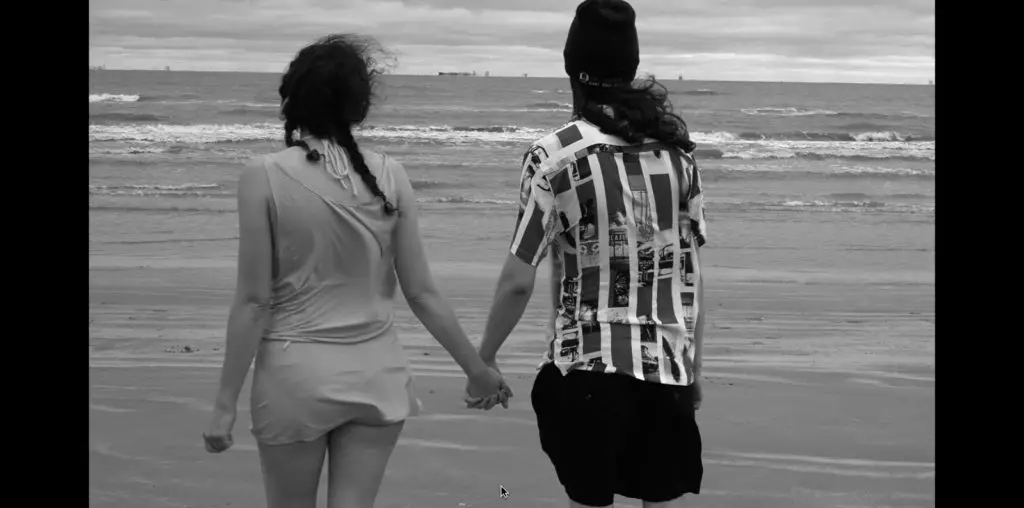
America loves it some serial killers. If we aren’t dramatizing the Son of Sam or racing to produce a biopic about the BTK Killer, we’re making s**t up. Two of the most recent acclaimed fictitious efforts in this vein are “The Silence of the Lambs” – the legacy of which has been steadily diluted by a slew of inferior sequels – and “Seven,” which gave us all the vicarious thrill of imagining a headless Gwyneth Paltrow.
“Seven” director David Fincher returns to the serial murderer well once more with “Zodiac,” the story of the never-captured killer of the same name who terrorized the San Francisco Bay Area in the late 1960s and early 1970s. The Zodiac killer gained notoriety for taunting police in letters to local newspapers and maintained a media presence well into the ‘70s, in spite of the fact his last confirmed murder took place in 1969.
The film gets right down to it, opening with the shootings of a couple on the outskirts of Vallejo, California on July 4, 1969. The boy survived, the girl did not. Shortly thereafter, the killer sent letters to three area newspapers, describing details only the shooter would know and reveling in hunting the “most dangerous anamal[sic]” of all. In September, another man and woman were stabbed in Napa County, followed by the shooting of a cab driver in San Francisco. Another letter followed, taunting the police and asserting the killer’s interest in shooting local school children.
Among those caught up in the mystery are San Francisco Chronicle crime reporter Paul Avery (Robert Downey, Jr.) and cartoonist Robert Graysmith (Jake Gyllenhaal). Avery covers the story, but is intrigued by cartoonist’s apparent insight into the killer’s motives and actions. The dissolute, substance-abusing Avery and straight-laced Graysmith form an uneasy friendship, at least until their respective bad habits and fixation on the case get the better of them.
The cabbie’s murder also brings the SFPD on board, namely detectives David Toschi (Mark Ruffalo) and his partner Bill Armstrong (Anthony Edwards). Like their journalistic counterparts, the two men find themselves increasingly absorbed with the case, even after the murders end and the trail grows cold.
Those expecting a Boschian nightmare world (“The Streets of Seven Francisco,” perhaps) are liable to be disappointed. The murders all take place in the first 30 minutes, and Fincher devotes the rest of the film to the way the murders affect the lives of those involved. As it turns out, Graysmith is the only one who sticks with the case, amassing a great deal of information even after Avery leaves the Chronicle and Toschi and Armstrong go their separate ways. More importantly, “Zodiac” is as engrossing as “Seven,” but in a completely different way.
Fincher grew up in Marin County during the Zodiac years, and his knowledge of the period and attention to detail serve the picture well. The amount of information we’re presented with is staggering, and – by the end of the film’s 160 minute running time – gets to be a little much. “Zodiac” is an exhaustive (and exhausting) tale, made compelling by strong performances from Ruffalo and Downey and by a more restrained Fincher, who still has some tricks up his sleeve but never beats us over the head with gimmickry and stylistic exercises.
As a police procedural, “Zodiac” is fascinating. Toschi and Armstrong aren’t the only cops following the case, and with murders in several jurisdictions there are plenty of opportunities for screw-ups and dropped leads, all of which come to the fore as the movie plays out. As a horror movie, it benefits from being true, and Fincher packs more suspense into his film, especially one later scene with Gyllenhaal in a basement that is more genuinely frightening than any PG-13 horror release from the last ten years.
If there’s a complaint to be made here, it’s that Fincher shares Peter Jackson’s need for an editor. There’s nothing inherently wrong with throwing such a wealth of information at us, but not all of it works from the standpoint of the narrative. Graysmith, for example, is a central character (owing to the fact that his real-life counterpart wrote the freaking book), but his growing obsession isn’t really adequately explained (he was an Eagle Scout?) and Gyllenhaal isn’t up to the challenge of making him that compelling a figure. “Zodiac” works best when it focuses on Ruffalo and the understated Edwards and their efforts to catch the killer.
All told (and to paraphrase Agent Dale Cooper), “Zodiac” is a damn fine movie. The more unpleasant aspects of the case are minimized in favor of telling the story and highlighting the effects of the case on these four men. It drags in spots, but even if Fincher hasn’t hit it out of the park, “Zodiac” is easily a stand-up triple.
